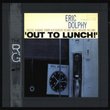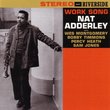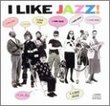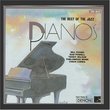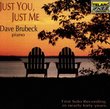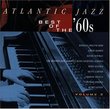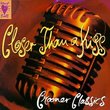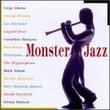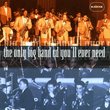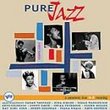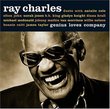| All Artists: Sonny Rollins Title: Freedom Suite Members Wishing: 2 Total Copies: 0 Label: Ojc Release Date: 7/1/1991 Genres: Jazz, Pop Styles: Modern Postbebop, Bebop Number of Discs: 1 SwapaCD Credits: 1 UPC: 025218606721 |
Search - Sonny Rollins :: Freedom Suite
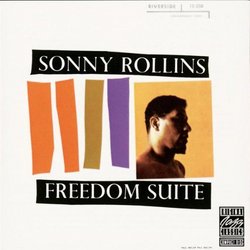 | Sonny Rollins Freedom Suite Genres: Jazz, Pop
By 1958 Sonny Rollins was already able to claim the jazz high road as a tireless innovator who chose to test the mainstream's boundaries. Freedom Suite made his place in the vanguard all the more stable. Rollins slimmed hi... more » |
Larger Image |
CD DetailsSynopsis
Amazon.com By 1958 Sonny Rollins was already able to claim the jazz high road as a tireless innovator who chose to test the mainstream's boundaries. Freedom Suite made his place in the vanguard all the more stable. Rollins slimmed his ensemble down to a trio--as he had done a few months earlier on his Village Vanguard live recordings (see volume 1 or volume 2). But Rollins turned the trio to his own extended work, this CD's title suite, and his horn playing thrived under the extensions. "Freedom Suite" is a winding, episodic piece, full of stair-climb segues and solos that seemed to be collective with drummer Max Roach. And its political implications were fully externalized in the title, declaring Rollins's position on the burgeoning civil rights movement. Rollins didn't altogether give up the standards or show-tune repertoire, however, staying in the pop-music ring with Noel Coward's "Someday I'll Find You." --Andrew Bartlett Similar CDs
Similarly Requested CDs
|
CD ReviewsForward Thinking Hard Bop Par Exellence! Christopher Forbes | Brooklyn,, NY | 03/24/2004 (5 out of 5 stars) "Something was definitely in the air in the late 50s. Though the dominant musical style in jazz was hard bop, with its bluesy amalgam of bop phrasing and 30s swing styles, many instrumentalists seemed poised to break into new territory. Coltrane was developing his complex harmonic practices in his work with the Davis Quintet and on his first solo albums. Monk was developing his quirky style into something that didn't quite fit into the prevailing bop style. Cecil Taylor had already recorded his first ground-breaking albums. In this list of "proto free jazz" classics one name often gets forgotten, that of Sonny Rollins. Perhaps it's because Rollins' music was still so tied to standards and bop phrasing, and it doesn't sound "out" the way many of the others do. But Rollins' musical concept is at least as far reaching as any developed in the late 50s, and this album is testimony to that fact. The Freedom Suite is an example of Rollins' pioneering work in the saxophone trio genre, a genre that he was one of the first to develop. Backed by an outstanding rhythm section of underrated bassist Oscar Pettiford and the brilliant Max Roach, Rollins' "pianoless" group paved the way for the sax power trios of Ornette Coleman, Sam Rivers and Albert Ayler in the 60s. Lacking the harmonic straightjacket that a chordal instrument lays over jazz, this setting allows Rollins free reign to create his astonishing improvisations. Whether using reworked standards like Till There Was You, or Will You Still Be Mine, or his ambitious, multi-movement Freedom Suite, Rollins the improviser dominates the disc. And his profoundly logical, deeply structured and yet infectious bop phrases never disappoint.Most impressive on the disc is the title cut. The Freedom Suite is a nearly 20 minute work, based on several jazz heads cut and arranged with overall form in mind. The compositions themselves are deftly written and catchy...but they also exhibit an underlying unity. They form a backdrop over which Rollins can unfold his unique approach to improvisation. Rather than following the boppers into greater and greater harmonic abstraction, Rollins takes a melodic approach, one that is amazingly logical and yet emotionally satisfying. Though the work is certainly not free jazz, there is a sense in which Rollins, Pettiford and Roach play the melody of the tune rather than the harmony. Though there are changes that are kept throughout the improvisations, the structuring devices are melodic and related to the compositions. In many ways, this is the most radical aspect of Rollins' work of the 50s. It leads directly to the innovations of the Coleman groups just a year later. In fact listening to The Freedom Suite and then one of Coleman's Trio discs like the Golden Circle sessions helps to show how experimental Rollins was at this time...and how rooted in tradition Coleman is. It is but a short jump from one to the other. But this album is not only historically important...it cooks as well. Roach is as inventive a drummer as there is, and his playing here is some of the best work he's done. Most of Rollin's improvisations are in reality duo improvs with drums. There are few drummers who are as tasteful, forceful and musical as Roach. Pettiford is a wonder here. He is an able foil to Rollins both melodically and harmonically. His walking lines are inventive, strain the harmonic structure sometimes, but never break it. His duo with Rollins on Till There Was You is remarkable. This is some of the best, and most joyous playing of the hard bop era. It's a classic album and one that every jazz fan should own." 4 1/2 A Musical Analysis: Superb Improv within Basically M. Allen Greenbaum | California | 01/24/2007 (5 out of 5 stars) "Perhaps as well-known for its political implications/reflections as it is for its music, "Freedom Suite" is probably the first attempt by a hard bopper at the "long from" --extended improvisation lasting more than the usual 3-5 minutes. In my opinion, the master (other than the semi-classical aesthetic of Ellington, who frequently used terms such as "Suite" and "Concerto"), the master of the form is composer/bassist Charles Mingus. In contrast to these two giants, Rollins works within a trio format, thus presenting a heavier burden on each musician. Fortunately, ROllins' trio has three greats, Rollins, Oscar Pettiford on bass, and Max Roach on drums. Bottom line: This is an excellent, although not "essential" (whatever that vague term means) album that's worth your time and money if you're a fan of Rollins, post-bop, the long-form, or generally consider yourself a jazz fan. What follows are more extended notes on the cuts, especially the 19-minute "Freedom Suite."
The first movement of "Freedom Suite" (19 minutes, 17 seconds) begins with a simple, fairly light riff, with drums and bass filling in between restatements. Then Sonny Rollins improvises against the riff's rhythm and harmonies--one can still hear the basic melodic structure as well. Rollins fluid sound contrasts in an interesting way with the sharply percussive, punctuated rhythm section. As is frequently the case, the improvisations move further from the basic theme, but he still makes this center a home. Bassist Petitford has an excellent, nimble solo, and then Rollins plays, this time sounding more like the rhythm section, with shorter bursts of sound introducing an exciting yet economical Max Roach solo. IN short, the first movement is fairly conventional structurally and sonically, it seems like a warm-up. We're soon treated to a different theme, somewhat more anguished and blues-based, with superb bowed bass backing Rollins thoughtful flights and bursts. He changes tempo suddenly, and the anguish is both softer and more sullen, more thoughtful. The tone is very satisfying, neither overly dry, nor so rich that it would overshadow the emotional impact. Rollins melody and tempo conveys both bitter feelings and a sort of yearning/quiet hope. Much of it is beautiful. The third movement has a curious energy, with the band prowling around some mysterious territory, searching, stopping, then taking off in a different direction altogether. It feels like a trapped tiger running quickly through a labyrinth, speeding and altering course. It's a very short but effective section. The final section is much more hard-boppish, propelled nicely by the tight rhythm of Roach and Petitford, with several energetic long lines by Rollins. The three band members take memorable turns, complementing each other superbly. The mood does suggest a measure of increased freedom, a breakout, with the ultimate outcome unknown In a final, elegant, statement, Rollins seems to suggest the dignity of his dream. Things are understandably more casual on "Someday I'll Find You," (4:35) with Rollins sounding somewhat dryer (although not even approaching Jackie McLean's tone). It's most notable for the tight playing and hard bop aesthetic, and some excellent, varied drumming patterns from Max Roach. They return to the melody in the final 45 seconds or so. "Will You Be Mine" is somewhat in the same vein, with a Mingus-like conclusion. There are two versions of the lovely "Till There Was You," fans and musicologists will note that these are Take 4 (4:54) and Take 3 (4 :55). Both are slow, with Rollins playing some interesting solo breaks. I found Take 3 more satisfying, Rollins blowing a smooth, very confident sound against a "cooler" bass and drums. The tones are somewhat rounder, and the more subtle background gives Rollins' statement a clearer voice. The final cut show Rollins in a more contemplative mood, with a fine, rich Petitford solo, out of which Rollins voices snippets of sound, like fragments of some larger riff. Then, as if often the case here, he concludes on a mellow tone. Although Rollins doesn't master the much vaunted "long form" as well as Mingus, Freedom Suite (the composition, not the album), conveys emotion, and shows improvisorial abandon within its structure. That structure is a little too constrained, although that may be due partially to the 3-piece band (as opposed to the nonets, etc., employed by Mingus). Although Rollins, at this early, stlll primarily post-bop stage, doesn't take the chances that Mingus did, his probing, exploring sounds and expression are mostly compelling, and the band is superb. Recommmended." |

 Track Listings (6) - Disc #1
Track Listings (6) - Disc #1